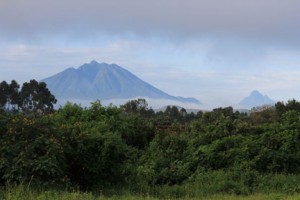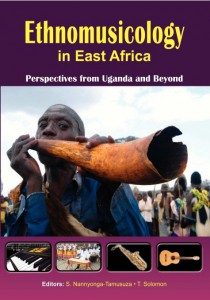By the end of this week we will be on the road in Uganda, travelling to the north of the country for our latest field recording visit. It’s a good time to reflect on the importance and relevance a project such as Singing Wells.
Why should we record and archive traditional music?
Our objectives are not about archiving music for the sake of it. We do not see ourselves as ‘fossil collectors’, merely recording the music and dance performances of traditional groups and then archiving it in sound libraries where it might become largely inaccessible to most audiences, including the performers themselves. Our aim is to make sure that what we witness, record, document and store is also shared with the widest possible audience. Our recordings are added to our Music Map of East Africa for everyone to hear but only after we have received the permission of the performers to do so, of course.
High quality field recordings of indigenous music groups are a valuable resource for those want to learn from these traditional cultural expressions. They have the potential to empower communities to continue to perform and educate future generations. Recordings must be professionally archived as history shows us that they can have a huge impact on the communities from which they originate, as Janet Topp Fargion, Curator of World and Traditional Music at the British Library points out in the book ‘Ethnomusicology of East Africa: Perspectives from Uganda and Beyond’. In her chapter entitled ‘Connecting with Communities: Building Sustainable Models for Audiovisual Archiving into the Future’, Janet gives us some inspiring examples of how archived recordings have helped communities, one of which centres on the Batwa people of south west Uganda – the community we recorded for the Singing Wells project back in November 2011 (click here for field reports).
In the mid 1960’s an ethnomusicologist called Peter Cooke recorded oral histories of the Batwa tribe in Uganda, who were, at that time, a community of forest dwelling hunter-gatherers. Cooke’s recordings were subsequently archived at the British Library. The recordings were recently found by Chris Kidd, a Ph.D. student who was working for the United Organisation for Batwa Development in Uganda (UOBDU). Chris took the recordings back to Uganda and re-introduced them to the Batwa people who had since become a poor, landless and disempowered community following their eviction from the forests due to the gorilla conservation project in the mountainous south west region of the country.
In particular, Chris played a recording to Jeremiah Bunjagare whose father’s voice had been captured by Cook back in the 60’s. The father had passed away many years before and his native language ‘Rutwa’ was fast dying out. When Bunjagare heard his father’s voice he danced for joy and thanked Kidd for ‘bringing his father back to life’. Listening to the recordings had allowed him and other members of the community to reflect on a time when the Batwa were respected as a people and for their culture, a time when they had ‘sat beside kings’.
Chris Kidd is now working as a Project Officer in Uganda for the Forest Peoples Programme.
Another inspirational example of how properly archived recordings can help communities comes from the work of Samuel Kahunde, a Ugandan student whose doctoral thesis centred on issues of preservation and musical change. Kahunde accessed the recordings of Klaus Wachsmann which had been made in Uganda in the early 50’s and were archived at the British Library. He used the recordings to research how musical performance had changed over the years. He focussed on the music of the Buganda Royal Court which had not been heard for a generation after the Buganda Kingdom was abolished in 1966 by Milton Obote. The Kingdom was reinstated in 1987 and the Wachsmann recordings have inspired a new generation to revive some of the instrumental and stylistic traditions of old.
The Klaus Wachsmann collection is being repatriated to Uganda at the Makerere University in Kampala. The curator of the music archive is Dr. Sylvia Antonia Nannyonga-Tamusuza who we will be meeting while we are in Uganda next week.
Click here to link to the Klaus Wachsmann Music Archive.
References
Ethnomusicology in East Africa: Perspectives from Uganda and Beyond
Published in 2012 by Fountain Publishers, Kampala. Editors: Sylvia Nannyonga-Tamusuza and Thomas Solmon
Available in print from African Books Collective: click here


